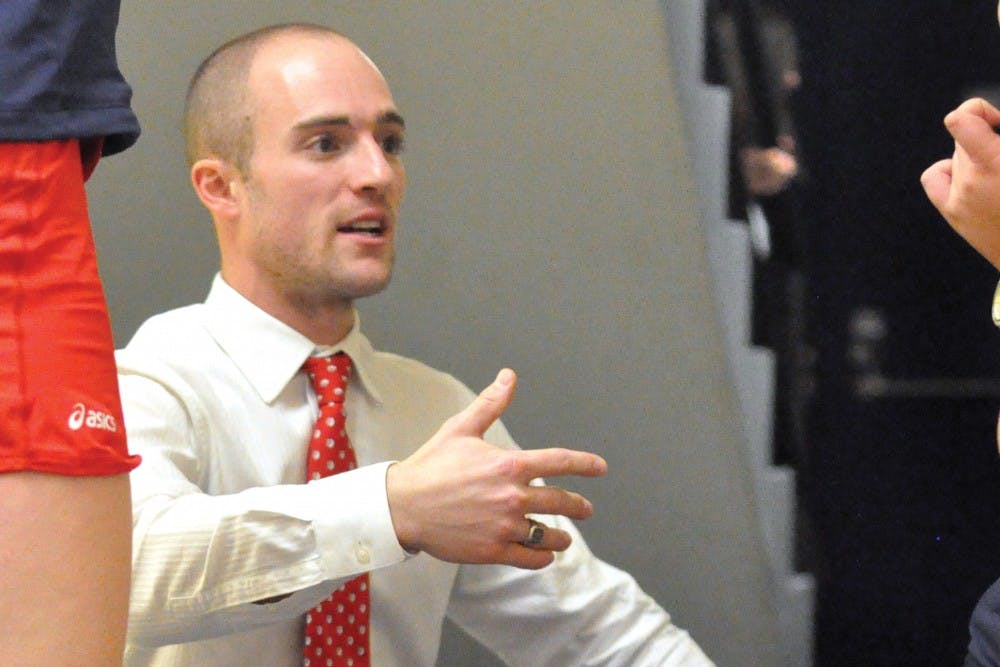
When associate assistant coach Gilly Lane was competing on the PSA Tour, he spent four hours coaching and four hours training each day.
For most, becoming a coach marks the end of one’s playing career. For the coaches of Penn squash, however, it only adds another dimension to their game.
The three coaches representing the Quakers have the unique challenge of trying to juggle the responsibilities of coaching teams with lofty expectations alongside keeping their personal skills on the court good enough to beat their fellow coaches.
Squash is unique from most sports, as it can be enjoyed far past an athlete’s prime playing years — in 2003, Forbes ranked the sport as the healthiest to play. While the three coaches have eschewed chasing after more championships on the professional circuit, they find time to play in different tournaments to keep their personal repertoires up to snuff.
Associate assistant coach Gilly Lane’s first stint as an assistant with the Red and Blue during the 2010-2011 season saw him balancing his responsibilities as an athlete on the Professional Squash Association Tour as well as a coach.
Lane spent an average of four hours a day training for his personal career on top of another four hours helping out every day at practice. While there was a large time commitment needed, Lane felt that the opportunity was rewarding.
“Funny enough, some of my best results came from that year,” Lane noted.
Assistant coach Richard Dodd didn’t pursue a pro career after graduating from Yale in 2013, but he has found time to compete in various tournaments in between his graduate school work.
Trying to dominate the T isn’t just reserved for the players of Penn squash. The Red and Blue’s three coaches also find themselves lacing up to play each other from time to time.
“The same way the basketball coaches do midday hoops at the Palestra, we do something similar here on the squash courts,” head coach Jack Wyant said.
Despite the age gap between the younger assistants, Wyant still goes up against the two former Skillman Award winners from time to time. And where he may fall short in agility next to Lane and Dodd, he makes up for with trash talk.
“[The trash talk] is mostly coming from me,” Wyant said. “I need to do anything and everything in my power to get them off their game.”
The coaches shied away from crowning themselves as the best of the group, but Dodd made sure to trumpet the dominance of his doubles team with Wyant.
At practice, learning goes both ways between the coaches and players. The international contingent on the team — six different countries are represented across both squads — brings a bevy of new strategies that often contradict some of the basic foundations upon which the coaches learned the game.
The common approach for American and European players involves utilizing the back corners of the court in order to open up the front half for drop shots. However, a newer strategy has emerged from Egypt — a country represented by four different Penn players — by contradicting the former strategy and focusing more on hitting the front corners of the court.
“It makes you think a lot more about the dynamics of the game,” Dodd added. “You never really stop learning when you’re a coach. It gives you a new perspective.”
With both teams in the midst of one of their best stretches of success in program history, it has become evident that the winning pedigree from Penn’s coaches is starting to rub off on its players.
The Daily Pennsylvanian is an independent, student-run newspaper. Please consider making a donation to support the coverage that shapes the University. Your generosity ensures a future of strong journalism at Penn.
DonatePlease note All comments are eligible for publication in The Daily Pennsylvanian.




